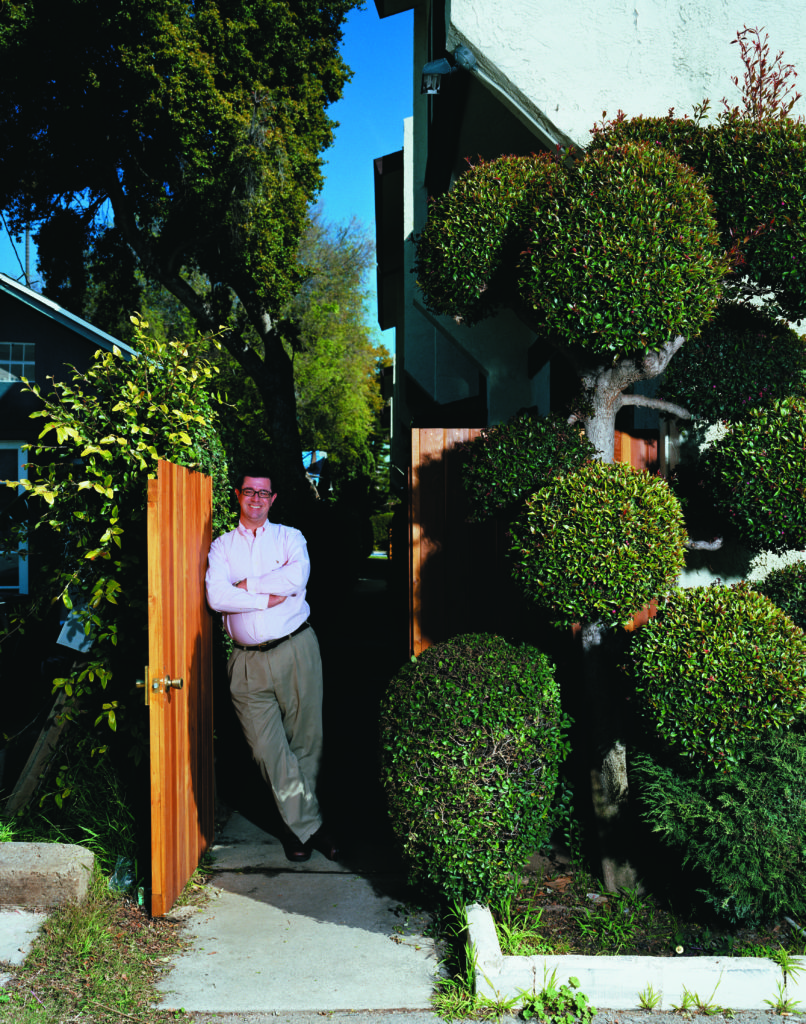John A. Hall: Seeking Truth in Cambodia
A decade ago, John A. Hall ’00 was a history professor on the academic fast track when a life-changing vacation made him reexamine his role in the world. Today, Hall is a human rights legal scholar whose research has improved transparency in the tribunals of the surviving leaders of the Khmer Rouge. During the last several years, Hall has authored several opinion pieces on the subject—most notably one in a September 2007 issue of The Wall Street Journal that exposed an internal United Nations investigation detailing kickbacks, unfair hiring practices, and lack of oversight in the court. His publication of the suppressed report spurred reforms in the quest for justice for the Khmer Rouge’s victims.

“A tool of human rights lawyers is to shine the light of public scrutiny on poor behavior,” Hall says.
His journey to Cambodia started with a backpack. In 1992, the Kent, England, native took off for a trek through Southeast Asia. At the time, Hall was an American history professor at Albion College in Michigan. Cambodia was struggling to recover from the bloody 1975–79 reign of the Khmer Rouge that killed roughly 1.7 million Cambodians.
Hall arrived in Phnom Penh in December, just as a massive two-year reconstruction effort led by the U.N. was ending. He was appalled by the poverty and suffering he saw in the capital city but was intrigued by the international corps of human rights lawyers working to rebuild the country’s decimated legal system.
“It wasn’t that I didn’t know things like that happened,” Hall says of the deprivations he witnessed. “It was the realization that there were people in the world doing something about it. I realized that teaching colonial American history wasn’t going to have the direct impact those people in Cambodia were having.”
Back at Albion, he decided a career shift to law would enable him to more closely affect the injustices he witnessed. He enrolled at Stanford Law in 1997. Though he sometimes felt overwhelmed by the career change—and at times, he recalls, “I seriously questioned my sanity”—he won the Carl Mason Franklin Prize in International Law twice before graduating in 2000. He also returned to Cambodia while at Stanford Law as a legal intern with Legal Aid of Cambodia. His task then was to investigate labor conditions in the bourgeoning garment factories—an area of research that continues to be a focus of his scholarship.
He began teaching at Chapman University School of Law in Orange, Calif., after a few years in private practice, and he is now an associate professor of law and research fellow at the law school’s Center for Global Trade & Development. He returned to Cambodia several times for human rights law research, including a trip in 2007 to write an article about the Khmer Rouge tribunals.
Legal watchdog groups had accused the U.N.-backed trials of corruption since before the first public hearings in 2007, but couldn’t back up their claims. The U.N. denied the charges publicly but conducted an internal investigation, and immediately sealed the results. When Hall arrived in Phnom Penh, it seemed that every journalist in town was trying in vain to get a copy of the suppressed audit. Hall got one.
“As soon as I read it, I realized how damning it was,” he says.
The U.N.’s own investigation found serious problems on the Cambodian side of the court, such as hiring underqualified staff, overpaying salaries, and lack of oversight. Realizing that the information in the audit was too important to keep quiet through the slow process of academic publishing, Hall penned an opinion piece for The Wall Street Journal detailing the secret investigation’s results. His piece ran September 21, 2007, in the paper’s Asia and U.S. editions. Other critics soon came forward. By October, the U.N. agreed to make the audit and several other key documents public and to set firmer anti-corruption policies.
Hall continues to bring attention to human rights violations in Cambodia. In the summer of 2008, he authored an op-ed in the International Herald Tribune that addressed the challenges to press freedom and murders of journalists in Cambodia. And in the lead-up to the first trial, scheduled for March 30, 2009, Hall has written several more opinion pieces for The Wall Street Journal, International Herald Tribune, and Far Eastern Economic Review.
“The victims of the Khmer Rouge have waited 30 years to see the leaders brought to justice,” says Hall. “They deserve a tribunal that meets international standards and addresses the serious allegations of corruption.”
